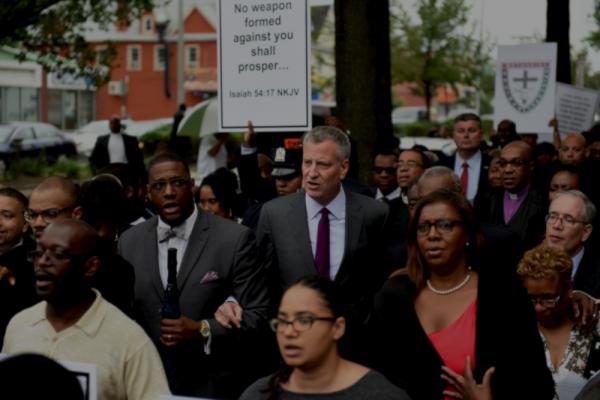The first time I read Martin Luther King, Jr.’s 1963 “Letter from a Birmingham Jail,” I was getting ready to teach it to a batch of college freshman. I remember studying the essay a few nights before class and being totally arrested by King’s message. My throat tightened and my heart pumped with the adrenaline of urgency. His words were so eloquent, so convicting. So prescient.
I know, I was a bit late to the Martin Luther King Jr. party.
As I read his letter, I felt myself dipped into America’s segregated past and pulled up again with new eyes. Suddenly, the world took on a darker hue beneath the broader strokes of American culture.
It was impossible to read King’s description of life for blacks in America and not groan inwardly.
He writes, “I guess it is easy for those who have never felt the stinging darts of segregation to say ‘wait.’ But when you have seen vicious mobs lynch your mothers and fathers at will and drown your sisters and brothers at whim; when you have seen hate-filled policemen curse, kick, brutalize, and even kill your black brothers and sisters with impunity … then you will understand why we find it difficult to wait.”
And here suddenly the letter lurches forward in time, slides through decades and lands squarely in our laps in 2015. It seems almost as if he isn’t talking about men and women of the past, but about Michael Brown, Eric Garner, Clementa Pinckney, Sharon Coleman-Singleton … the list is so sickeningly long.
He goes on to record injustices in Birmingham: “There can be no gainsaying of the fact that racial injustice engulfs this community. Its ugly record of police brutality is known in every section of this country. Its unjust treatment of Negros in the courts is a notorious reality. There have been more unsolved bombings of Negro homes and churches than in any other city in this nation.”
Wait. What are we talking about? Birmingham, or Cleveland? Ferguson? Charleston?
“Letter from a Birmingham Jail” has always itched at me, unsettled me. It bothers me because King isn’t writing to political leaders, but religious leaders, people of faith, people who follow the same Jesus as me.
Dr. King wrote about his early hopes for the white church, “I felt that the white ministers, priests, and rabbis of the South would be some of our strongest allies. Instead, some few have been outright opponents, refusing to understand the freedom movement and misrepresenting its leaders; all too many others have been more cautious than courageous and have remained silent behind the anesthetizing security of stained-glass windows.”
This last observation takes the wind right out of me. A tiny, terrifying question wiggles its way into my heart: Would I have been one of the few white Christians who stood with Dr. King? Or would I have remained silent and anesthetized just like the rest?
I think the question the white church needs to ask itself today is not, would we have stood for justice then? Obviously, that question has been answered. What we need to ask ourselves today is, will we stand for justice now?
We are at a moment in time when our black brothers and sisters are speaking loudly about the injustice of police brutality, the demonization of the black man, the brokenness of the justice system, the poverty of black communities.
The white church can bring a certain power to bear on these wrongs.
King writes, “There was a time when the church was powerful…Wherever the early Christians entered a town the power structure got disturbed …[the church was] small in number but big in commitment. They were … God-intoxicated …They brought an end to … ancient evils.”
What say we, white church? Can we be disturbers of the peace? Can we be so God-intoxicated that we bring an end to the evils of systematic oppression? Can we stand with our black partners and champion their cause, share their stories, join the conversation, shed our own comfort, sacrifice our privilege, and speak truth to power?
Let’s rise to the occasion. Let’s live into the vision Dr. King had for the white church six decades ago.
Got something to say about what you're reading? We value your feedback!

